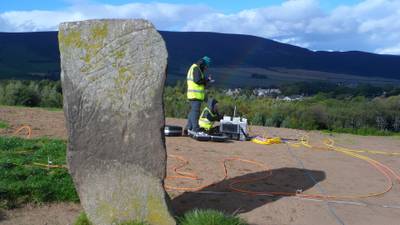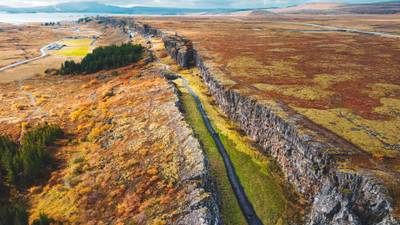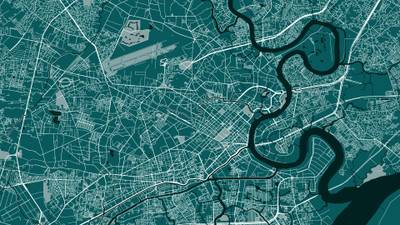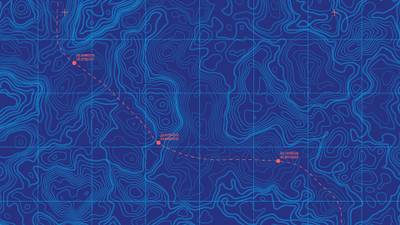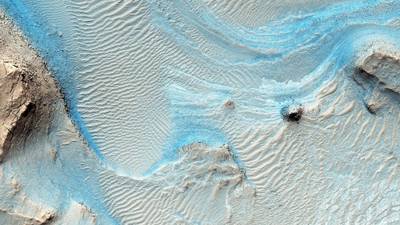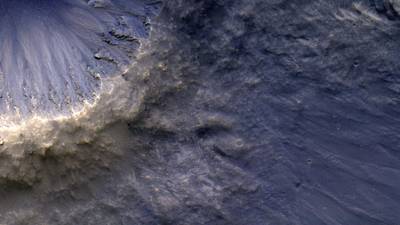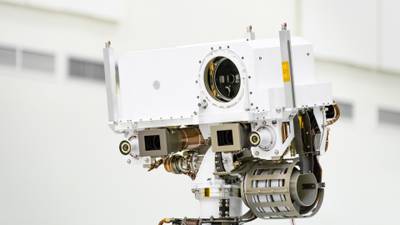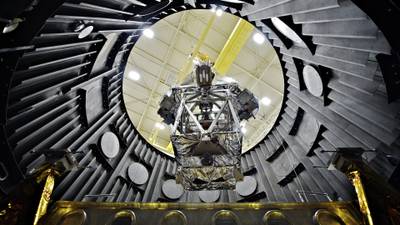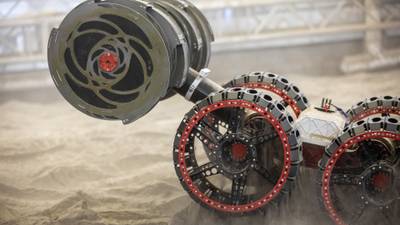Study comparative planetology online with expert planetary scientists.
Join us online to learn how the study of other planets helps us better understand Earth’s atmosphere.
Comparing planetary atmospheres is a vital part of planetary sciences. The process reveals similarities and differences that test and inform our understanding of these environments.
In this Masters-level online short course, you’ll learn how comparative planetology is carried out, to help lead us to new insights.
With expert guidance, you’ll examine:
- key processes in planetary atmospheres and the methods and missions used to study them
- how our solar system planets formed and evolved to their current states
- past, current, and future missions providing information about the atmospheres of the planets.
Who can join this online planetology course?
Space exploration offers opportunities for everyone, regardless of your field of study.
This Masters-level short course is open to students from any discipline.

Build credits towards a Masters degree
This short course is part of online:
You can use the credits you earn on this course towards this MSc qualification.
What you’ll study
In this course, we’ll explore how studies of the other planets of the solar system have helped us to understand Earth’s atmosphere.
We’ll review the fundamental physical and chemical processes in planetary atmospheres.
We’ll also work through an up-to-date overview of modelling, observation methods, and missions to study planetary atmospheres.
Why we study other planets
Every measured aspect of a planetary atmosphere can be compared with the corresponding characteristics of the atmosphere of every other planet, including Earth.
Discovering how planetary atmospheres are similar and how they are different allows scientists to test their understanding of the processes that shape these environments.
Essential for planetary exploration
The study of planetary atmospheres is at the core of planetary exploration, intending to probe the nature and evolution of the planets and their atmospheres.
Building our understanding
Sometimes new observations confirm the predictions of existing models, providing confidence in the current interpretations.
Often a surprising result will emerge, which stimulates thought that leads to new insights.
In other cases, comparisons have expanded our appreciation of the Earth by placing specific attributes of our planet into a broader context.
Examining the solar system
The familiar characteristics of the Earth’s environment result from the actions of the same set of physical processes that have operated to varying degrees on other planets and at other times in history, producing the entire solar system and possibly other solar systems.
In this course, we’ll examine how our solar system planets formed and evolved to their current states. This understanding of our solar system may also enable us to predict exoplanets’ properties around other stars.
You’ll cover topics including:
- planets of the solar system and their atmospheres
- comparative planetology
- how geologists date the stages of the atmosphere’s history
- climate and atmospheric dynamics
- upper atmospheres
- terrestrial atmospheres
- giant planets and their moons
- space missions and methodologies
- is the Earth rare?
- finding and identifying Earth-like planets.
By the end of this course, you’ll be able to...
-
Understand the fundamental physical and chemical processes in planetary atmospheres.
-
Download data from space agencies’ databases.
-
Integrate diverse scientific information.
-
Analyse data from space missions.
-
Challenge published geological investigations and interpretations against your own observations and deductions.
Choose the University of Aberdeen for flexible online planetary sciences courses
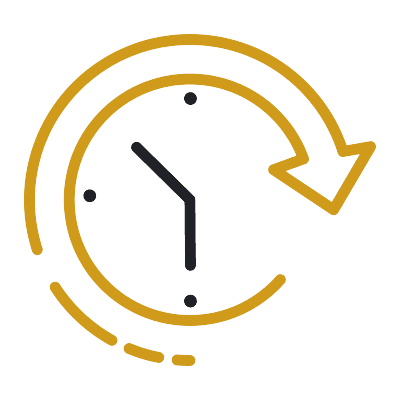
Fits around full-time work
This online course fits around work, with flexible hours and 24/7 study access.

Over 525 years of excellence
Study with the fifth-oldest university in the English-speaking world, founded in 1495.

You’re in expert hands
We’ve been delivering online and distance learning for decades.
How you’ll study
Online learning
This distance-learning planetology course is delivered flexibly, 100% online.
You can learn with us anywhere in the world, no student visa required, and manage your study hours to suit you.
Your teaching
This course is taught at Masters level.
Teaching is delivered through MyAberdeen, our online Virtual Learning Environment (VLE). It holds all the materials, tools and support you’ll need in your studies. Take a look around MyAberdeen.
You can access your learning materials on computer, smartphone and laptop, 24 hours a day. You’ll find a range of resources available, including:
- videos
- pre-recorded video lectures
- online tutorials
- live online sessions
- audio clips
- slide shows
- reading materials
- discussion boards with your tutors and peers
- the online resources of our award-winning Sir Duncan Rice Library.
Live online sessions
This course features between two and four live online sessions. These sessions will be recorded, so you can view them anytime if you’re unable to attend live.
Your tutors
This online short course is delivered by our Department of Planetary Sciences, within the School of Geosciences.
The Department of Planetary Science is focused on the study of Earth and planetary sciences, and the development of instruments for Earth and planetary exploration.
You’ll learn from a team of internationally experienced academics, who are actively involved in multidisciplinary research in this area.
This course is assessed online.
You’ll be assessed throughout this course via:
- your written work, and
- a presentation.
Live online sessions
This course features live online sessions.
Each session is scheduled to last for around one hour.
Session times will be organised at the start of the course. Your coordinator will consider everyone’s circumstances and time zones before setting up times.
Live sessions will be recorded, so you can view them anytime if you are unable to attend live.
Study hours
The course totals approximately 150 hours of study and assessment time. That’s around 10 – 15 hours per week.
This is an indicative guide to the time required for a typical student at this level to achieve the learning outcomes. This includes time for independent study, as well as teaching and assessments.
You can largely set your own study hours each week to cover the materials. MyAberdeen is available 24/7, so you can log in and study when it suits you.
Activities at fixed times
There will be some activities scheduled at fixed times, such as meetings with your tutor or assessments with deadlines. But otherwise, you can access and work through each course at your convenience.
Our first-class support structure will ensure that you aren’t alone in your studies. You’ll have contact with your coordinator via email, MyAberdeen, Microsoft Teams and WhatsApp. You can use social media and discussion boards to chat with your fellow students too.
We provide a wide range of services to support you in your studies and beyond:
- Careers and Employability Service
- Disability support
- IT support
- Library support
- Student Support Service – help with finances, wellbeing and non-academic issues
- Student Learning Service – study support, with advice sessions available
- Aberdeen University Students’ Association (AUSA) – run by students for students
- Toolkit – clever apps and free training that can make your study life easier
Wherever you are in the world, you’ll feel part of our very special Aberdeen learning community.
Where this will take you
Towards a Masters
You’ll earn 15 credits at Masters level (SCQF Level 11) with this course. You can use these credits towards our:
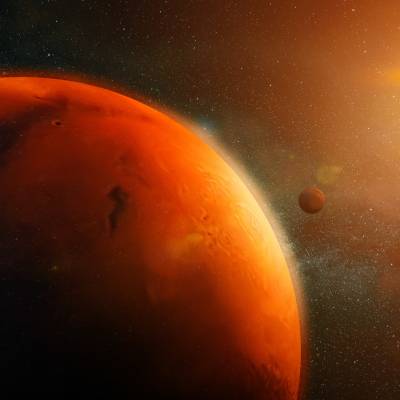
Masters in Planetary Sciences
Move into a career in the space industry, whatever your academic background. Join our online Masters degree and study anywhere, at your own pace.
View MSc Planetary SciencesCareers
This course is valuable learning for career progression within:
- the space sector
- planetary sciences
- government consultancy
- research in academia, public, or private research institutions.
Continuing Professional Development (CPD)
Your employer or professional institute may recognise this course for CPD hours. Talk to your employer or institute to find out more.

Free career support
Access our free careers service while you study.
- 1:1 appointments
- CV checks
- Interview prep
- Job opportunities
Entry requirements
Entry requirements
We welcome students from all over the world.
This course has no formal entry requirements. You do not need to provide proof of your qualifications.
But you do need to check the entry guidance above to understand the level of teaching delivered, to decide if this course is right for you.
If you do not have qualifications from the UK, check the equivalent teaching level for your country.
Visa requirements
You do not need a student visa to study online with us.
English language requirements
Teaching is delivered in English.
You do not have to provide proof of your English language skills to join this course. But we want to make sure that you can use English well enough to study successfully.
Recommended level of English
For this course, we recommend the following level of English language proficiency.
These are our Postgraduate Standard requirements, and these are minimum scores.
IELTS Academic, IELTS UKVI Academic, or IELTS Online (not IELTS Indicator or IELTS General Training)
- 6.5 overall
- 5.5 for listening, reading and speaking
- 6.0 for writing
TOEFL iBT or TOEFL iBT Home Edition
- 90 overall
- 17 for listening
- 18 for reading
- 20 for speaking
- 21 for writing
- TOEFL DI code is 0818
Cambridge English: B2 First, C1 Advanced, or C2 Proficiency
- 176 overall
- 162 for listening, reading and speaking
- 169 for writing
LanguageCert Academic / LanguageCert Academic SELT
- 70 overall
- 60 for listening, reading and speaking
- 65 for writing
Oxford ELLT Digital – English Language Level Test Online
- 7.0 overall
- 5.0 for listening, reading and speaking
- 6.0 for writing
PTE Academic (online test not accepted)
- 62 overall
- 59 for listening, reading, speaking and writing
Skills for English: SELT
- B2 pass with merit
Duolingo – tests taken from 1 July 2024 onward
- 120 overall
- 95 for listening, reading and speaking
- 105 for writing
University of Aberdeen English Pre-sessional Programme (PSE)
- Pass
- Valid for one year. Refresher can be offered if out of date
Pre-sessional academic English preparation programmes undertaken at other UK universities
- Pass at an equivalent of 6.5 (C1)
- B2 in all four skills
- Certification must be within one year prior to the start of your course
For full information about language requirements, see our English Language Requirements page.
You will need access to:
A computer (PC, laptop or Mac) with an up-to-date operating system
Most teaching materials are smartphone- and tablet-friendly. But we recommend a proper laptop or desktop for completing assignments comfortably.
Reliable internet access
We recommend:
- a wired connection
- a minimum download speed of 2 Mbps so you can take part fully in live sessions.
Speakers or headphones
- We recommend a headset with built-in microphone and earphones if you’re likely to study in an environment with background noise.
- A webcam is optional, but you may like to use one for some interactive sessions.
Software
We’ll give you access to Office365 applications. This means you can use online versions of Microsoft Word, Excel, PowerPoint and OneDrive and install these programs on up to five personal devices.
If your course requires specialist software, we’ll provide you with access to this and a licence that lasts throughout your studies.
See our detailed IT requirements for more information.
When you study with us, you can expect a first-class support structure so that you’re never alone in your studies.
But learning online does mean you have to motivate yourself and manage your own time.
Your most important commitment will be time – the time to work through, reflect on and understand your teaching materials.
Before you start a course that involves a high degree of independent study, we recommend looking at the time you will be able to devote to your studies each week:
- Be realistic
- Create a weekly schedule as a guide
If you have any questions about studying online, get in touch with our friendly team. We’re here to help.
Fee payment
Your course fee needs to be paid in full before you start your course.
We accept payment via Visa Debit, Visa Credit and Mastercard.
Ways to save
You may be able to get help funding this course via:
- discounts – if any discounts are available for this course, they’ll appear in the section below
- employer sponsorship – we accept full and partial fee payments from sponsors.
Find out more about funding options.
Student card
All our students are entitled to a University of Aberdeen student card. This gives you access to a range of student discounts around the city and online.
Learning resources
Access to all the books and resources you need are included in your tuition fee. They’ll be made available to you online and you do not have to buy your own copies.
Printing
You may wish to set aside a small budget for printing, depending on how you like to work.
This course has no formal entry requirements. You decide if it’s suitable for you.
The course is delivered at Masters level. At this level, you’d usually have at least:
- a 2:2 UK honours degree (or equivalent) in any discipline, or
- relevant professional experience that supports this level of learning.

